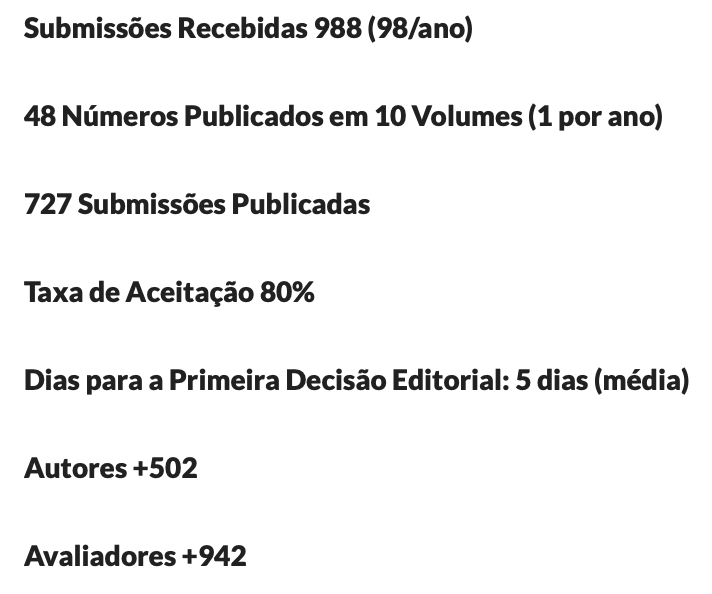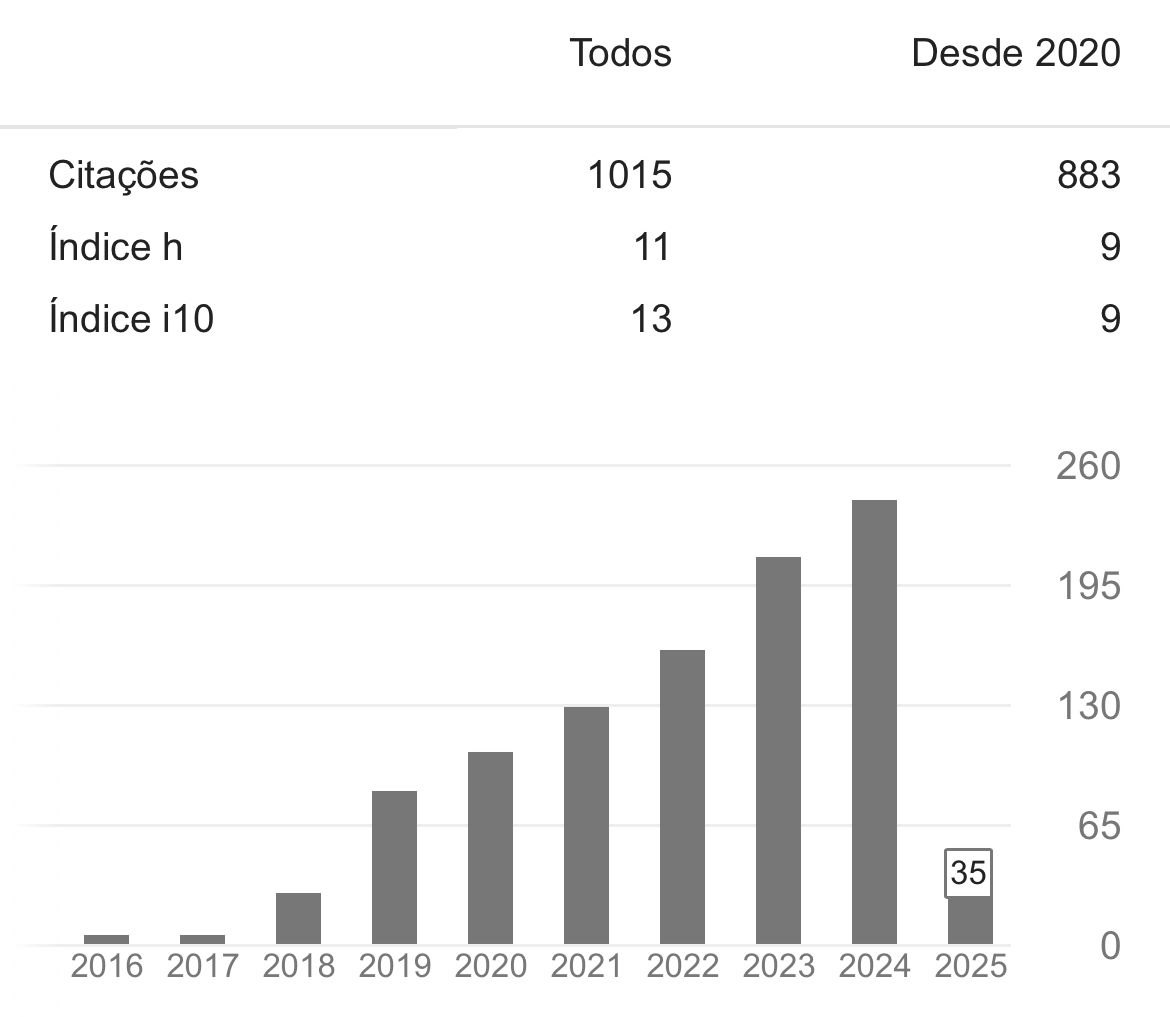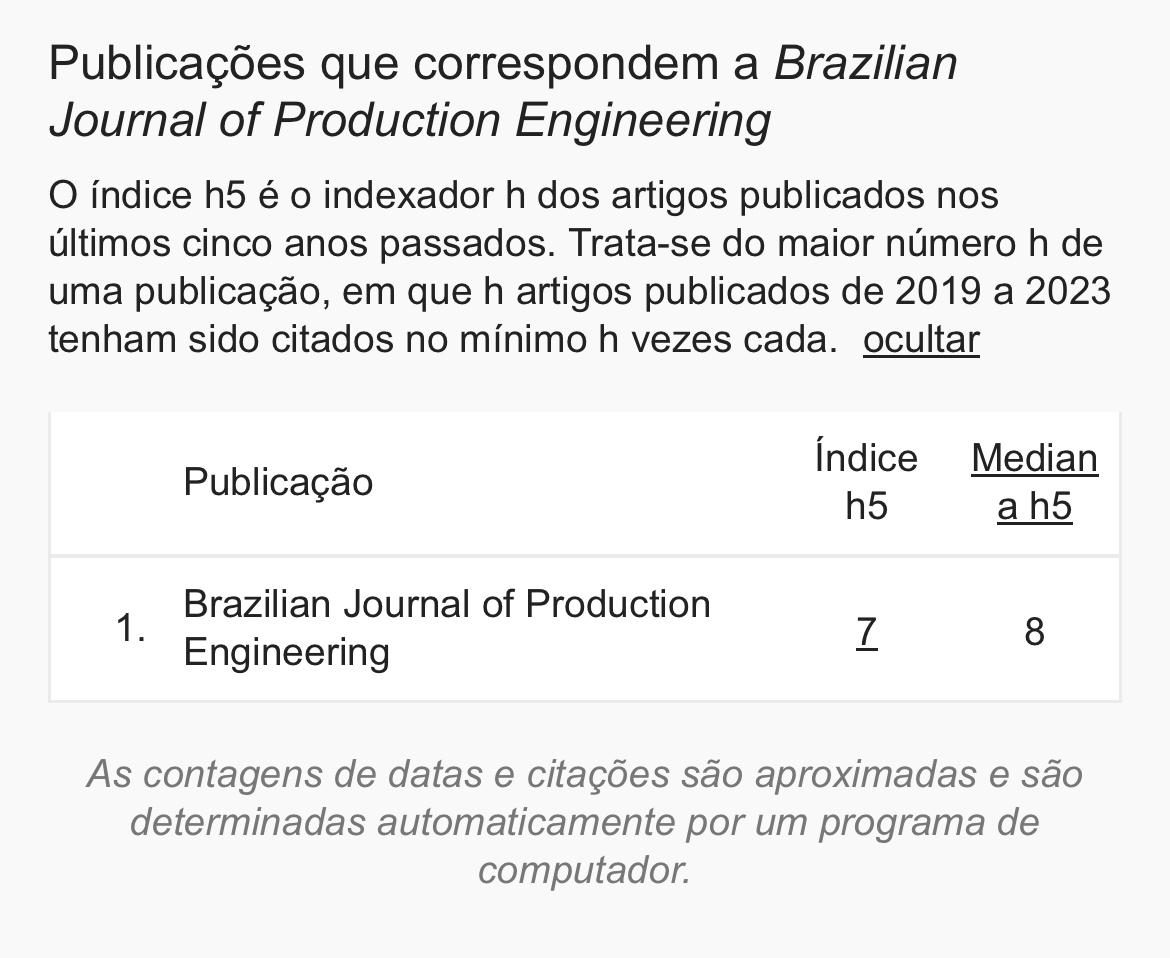How to assess the impact of blockchain on data security and privacy in the digital supply chain? A review of the state of the art
DOI:
https://doi.org/10.47456/bjpe.v10i2.44284Keywords:
Security, Data Privacy, Digital Supply Chain, Indicators, MeasurementsAbstract
Industry 4.0 organizations and Digital Supply Chains (CSD) are challenged to maintain the privacy and security of data in their systems due to cybersecurity, lack of management and trust among their members, among other issues. In this scenario, Blockchain (BCK) emerged as an alternative to maintain decentralized, secure and reliable information for participants. To verify the effectiveness of BCK adoption, the key requirements are indicated that summarize the criteria that must be considered to measure different aspects that impact the security and privacy of data in CSD. Subsequently, through a systematic review of the literature published in the last 10 years, reinforced by the PRISMA methodology and the snowball sampling technique, the main factors that must be evaluated were identified, such as constructs and measures, which are grouped into elements that represent what must be measured in some way by the CSD. Thus, a state-of-the-art review of BCK performance in CSD is carried out and the main measurement difficulties and opportunities for improvement are discussed.
Downloads
References
Aljabhan, B. & Obaidat, M. A. (2023). Privacy-Preserving BCK Framework for Supply Chain Management: Perceptive Craving Game Search. Sustainability. 1-23. https://doi.org/10.3390/su15086905 DOI: https://doi.org/10.3390/su15086905
Aslam, J., Saleem, A., & Kim, Y. B. (2023). BCK-enabled supply chain management: integrated impact on firm performance and robustness capabilities. Business Process Management Journal, 29(6), 1680-1705. https://doi.org/10.1108/BPMJ-03-2023-0165 DOI: https://doi.org/10.1108/BPMJ-03-2023-0165
Balfaqih, H., Nopiah, Z. M., Saibani, N., & Al-Nory, M.T. (2026). Review of supply chain performance measurement systems: 1998-2015. Computers In Industry, 82, 135-150. https://doi.org/10.1016/j.compind.2016.07.002 DOI: https://doi.org/10.1016/j.compind.2016.07.002
Bhattacharya, R. & Bandyopadhyay, S. (2011). A review of the causes of bullwhip effect in a supply chain. The International Journal of Advanced Manufacturing Technology, 54(9-12), 1245-1261. https://doi.org/10.1007/s00170-010-2987-6 DOI: https://doi.org/10.1007/s00170-010-2987-6
Bigini, G. Freschi V., & Lattanzi, E. (2020). A Review on BCK for the Internet of Medical Things: definitions, challenges, applications, and vision. Future Internet, 12(12), 1-16. https://doi.org/10.3390/fi12120208 DOI: https://doi.org/10.3390/fi12120208
Budak, A. & Çoban, V. (2021). Evaluation of the impact of BCK technology on supply chain using cognitive maps. Expert Systems with Applications, 184, 115455. https://doi.org/10.1016/j.eswa.2021.115455 DOI: https://doi.org/10.1016/j.eswa.2021.115455
Buntak, K., Kovačić, M., & Mutavdžija M. (2021). Measuring Digital Transformation Maturity of Supply Chain. Tehni?Ki Glasnik, 15(2), 199-204. https://doi.org/10.31803/tg-20200414191933 DOI: https://doi.org/10.31803/tg-20200414191933
Chopra, S. & Meindl, P. (2011). Supply Chain Management: strategy, planning and operation. New York: Pearson Prentice Hall. 529 p.
Çikmak, S., Kantoglu, B., & Kirbaç, G. (2023). Evaluation of the effects of BCK technology characteristics on SCOR model supply chain perfor. International Journal of Logistics Research And Applications, 1-31. https://doi.org/10.1080/13675567.2023.2193736 DOI: https://doi.org/10.1080/13675567.2023.2193736
Dolgui, A., Ivanov, D., & Sokolov, B. (2017). Ripple effect in the supply chain: an analysis and recent literature. International Journal of Production Research, 56(1-2), 414-430. https://doi.org/10.1080/00207543.2017.1387680 DOI: https://doi.org/10.1080/00207543.2017.1387680
Eur-Lex, Access to European Union Law. Constituição (2016). General Data Protection Regulation. Brussels, 27 abr. 2016. Recuperado de https://eur-lex.europa.eu/eli/reg/2016/679/oj
Fares, N. & Lloret, J. (2023) Barriers to supply chain performance measurement during disruptions such as the COVID-19 pandemic. International Journal of Quality e Reliability Management, 40(5), 1316-1342. https://doi.org/10.1108/IJQRM-03-2022-0095 DOI: https://doi.org/10.1108/IJQRM-03-2022-0095
Frederico, G. F., Garza-Reyes, J. A., Anosike,A., & Kumar V. (2019). Supply Chain 4.0: concepts, maturity and research agenda. Supply Chain Management, 25(2), 262-282. https://doi.org/10.1108/SCM-09-2018-0339 DOI: https://doi.org/10.1108/SCM-09-2018-0339
Gökalp, E., Gökalp, M. O., & Çoban S. (2020). BCK-Based Supply Chain Management: understanding the determinants of adoption in the context of organizations. Information Systems Management, 39(2), 100-121. https://doi.org/10.1080/10580530.2020.1812014 DOI: https://doi.org/10.1080/10580530.2020.1812014
Govindan, K., kannan, D., Jorgensen, T. B., & Nielse, T. S. (2022). Supply Chain 4.0 performance measurement: a systematic literature review, framework development, and empirical evidence. Transportation Research Part e: Logistics and Transportation Review, 164, 102725. https://doi.org/10.1016/j.tre.2022.102725 DOI: https://doi.org/10.1016/j.tre.2022.102725
Hani, J. B. (2022). The influence of supply chain management practices on supply chain performance: the moderating role of information quality. Business, Management and Economics Engineering, 20(1), 152-171. https://doi.org/10.3846/bmee.2022.16597 DOI: https://doi.org/10.3846/bmee.2022.16597
Harding, K. (2014). Zotero. Journal of The Canadian Health Libraries Association / Journal de L'Association Des Bibliothèques de, 34(1), 41. https://doi.org/10.5596/c13-003. DOI: https://doi.org/10.5596/c13-003
Hellweg, F., Lechtenberg, S., Hellingrath, B., & Thomé, A. M. T. (2021). Literature Review on Maturity Models for Digital Supply Chains. Brazilian Journal of Operations e Production Management, 18(3), 1-12. https://doi.org/10.14488/BJOPM.2021.022 DOI: https://doi.org/10.14488/BJOPM.2021.022
Hong, L. & Hales, D. N. (2021). BCK performance in supply chain management: application in BCK integration companies. Industrial Management e Data Systems, 121(9), 1969-1996. https://doi.org/10.1108/IMDS-10-2020-0598 DOI: https://doi.org/10.1108/IMDS-10-2020-0598
Johnson, M. & Stevens, G. C. (2016) Integrating the Supply Chain... 25 years on. International Journal of Physical Distribution e Logistics Management. Online, p. 19-42. https://doi.org/10.1108/IJPDLM-07-2015-0175 DOI: https://doi.org/10.1108/IJPDLM-07-2015-0175
Joshi, A., Kale, S., Chandel, S., & Pal, D. K. (2015). Likert Scale: explored and explained. British Journal Of Applied Science e Technology, 7(4), 396-403. https://doi.org/10.9734/BJAST/2015/14975 DOI: https://doi.org/10.9734/BJAST/2015/14975
Jum’a, L. (2023). The role of BCK-enabled supply chain applications in improving supply chain performance: the case of jordanian manufacturing sector. Management Research Review, 46(10), 1315-1333. https://doi.org/10.1108/MRR-04-2022-0298 DOI: https://doi.org/10.1108/MRR-04-2022-0298
Kakhki, M. D. & Gargeya, V. B. (2019) Information systems for supply chain management: a systematic literature analysis. International Journal Of Production Research, v. 57, n. 15-16, p. 5318-5339. https://doi.org/10.1080/00207543.2019.1570376 DOI: https://doi.org/10.1080/00207543.2019.1570376
Kamble, S. S. & Gunasekaran, A. (2019). Big data-driven supply chain performance measurement system: a review and framework for implementation. International Journal of Production Research, 58(1), 65-86. https://doi.org/10.1080/00207543.2019.1630770. DOI: https://doi.org/10.1080/00207543.2019.1630770
Kim, J. S. & Shin, N. (2019). The Impact of BCK Technology Application on Supply Chain Partnership and Performance. Sustainability, 11(21), 6181.
https://doi.org/10.3390/su11216181 DOI: https://doi.org/10.3390/su11216181
Kopyto, M., Lechler, S., Gracht, H. A. V. D., & Hartmann, E. (2020). Potentials of BCK technology in supply chain management: long-term judgments of an international expert panel. Technological Forecasting And Social Change, 161, 120330.
https://doi.org/10.1016/j.techfore.2020.120330 DOI: https://doi.org/10.1016/j.techfore.2020.120330
Li, Z. P., Ceong, H. T., & Lee, S. J. (2021). The Effect of BCK Operation Capabilities on Competitive Performance in Supply Chain Management. Sustainability, 13(21), 12078. https://doi.org/10.1080/00207543.2015.1026614 DOI: https://doi.org/10.3390/su132112078
Maestrini, V., Luzzini, D., Caniato, F., Maccarrone, P. e Ronchi, S. (2018). Measuring supply chain performance: a lifecycle framework and a case study. International Journal of Operations e Production Management, 38(4), 934-956. https://doi.org/10.1108/IJOPM-07-2015-0455 DOI: https://doi.org/10.1108/IJOPM-07-2015-0455
Mahdiraji, H. A., Yaftiyan, F., Kamardi, A. A. A., Garza-Reyes, J. A., & Hajiagha, S. H. R (2022). The role of Industry 4.0 technologies on performance measurement systems of supply chains during global pandemics: an interval-valued intuitionistic hesitant fuzzy approach. International Journal of Quality e Reliability Management, 40(5), 1147-1171. https://doi.org/10.1108/IJQRM-03-2022-0094 DOI: https://doi.org/10.1108/IJQRM-03-2022-0094
Mangla, S. K., Kusi-Sarpong, S., Luthra, S., Bai, C., Jakhar, S. K., & Khan, S. A. (2020). Operational excellence for improving sustainable supply chain performance. Resources, Conservation and Recycling, 162, 105025. https://doi.org/10.1016/j.resconrec.2020.105025 DOI: https://doi.org/10.1016/j.resconrec.2020.105025
Marinagi, C., Reklitis, P., Trivellas, P., & Sakas D. (2023). The Impact of Industry 4.0 Technologies on Key Performance Indicators for a Resilient Supply Chain 4.0. Sustainability, 15(6), 5185. https://doi.org/10.3390/su15065185 DOI: https://doi.org/10.3390/su15065185
Melnyk, S. A., Schoenherr,T., Speier-Pero,C., Peters, C., Chang, J. F., & Friday, D. (2021). New challenges in supply chain management: cybersecurity across the supply chain. International Journal of Production Research, 60(1), 162-183. https://doi.org/10.1080/00207543.2021.1984606 DOI: https://doi.org/10.1080/00207543.2021.1984606
Merrad, Y., Habaebi, M. H., Elsheikh, E. A. A., Suliman, F. E. M., Islam, M. R., Gunawan, T. S., & Mesri, M. (2022). BCK: consensus algorithm key performance indicators, trade-offs, current trends, common drawbacks, and no. Mathematics, 10(15), 2754. https://doi.org/10.3390/math10152754 DOI: https://doi.org/10.3390/math10152754
Moher, D., Liberati, A., Tetzlaff, J., & Altman,D. G. (2010). Preferred reporting items for systematic reviews and meta-analyses: The PRISMA statement. International Journal of Surgery, 8, 336-341. https://doi.org/10.1371/journal.pmed.1000097 DOI: https://doi.org/10.1016/j.ijsu.2010.02.007
Naderifar, M., Goli, H., & Ghaljaie, F. (2017). Snowball Sampling: A Purposeful Method of Sampling in Qualitative Research. The Strides in Development Of Medical Education Journal, 14, 1-4. https://doi.org/10.5812/sdme.67670 DOI: https://doi.org/10.5812/sdme.67670
Oláh, J., Krisán, E., Kiss, A., Lakner, Z., & Popp J. (2020). PRISMA Statement for Reporting Literature Searches in Systematic Reviews of the Bioethanol Sector. Energies, 13(9), 2323. https://doi.org/10.3390/en13092323 DOI: https://doi.org/10.3390/en13092323
Patidar, A., Sharma, M., Agrawal, R., & Sangwan, K.S. (2022). Supply chain resilience and its key performance indicators: an evaluation under industry 4.0 and sustainability perspective. Management of Environmental Quality: An International Journal, 34(4), 962-980. https://doi.org/10.1108/MEQ-03-2022-0091 DOI: https://doi.org/10.1108/MEQ-03-2022-0091
Piurcosky, F. P., Calegário, C., Costa, M., & Frogeri, R. F. (2019). A lei geral de proteção de dados pessoais em empresas brasileiras: uma análise de múltiplos casos. Suma de Negocios, 10(23), 89-99. http://dx.doi.org/10.14349/sumneg/2019.V10.N23.A2 DOI: https://doi.org/10.14349/sumneg/2019.V10.N23.A2
Prisma Statement. (2023). Home. Recuperado de: http://www.prisma-statement.org/
Queiroz, M. M., Pereira, S. C. F., Telles, R., & Machado, M. C. (2019). Industry 4.0 and digital supply chain capabilities. Benchmarking: An International Journal, 28(5), 1761-1782. https://doi.org/10.1108/BIJ-12-2018-0435 DOI: https://doi.org/10.1108/BIJ-12-2018-0435
Roever, L. (2020). Guia prático de revisão sistemática e metanálise. Rio de Janeiro: Thieme Revinter. 86 p.
Ronaghi, M. H. (2022). Contextualizing the impact of BCK technology on the performance of new firms: the role of corporate governance as an intermediate outcome. The Journal of High Technology Management Research, 33(2), 100438-100451. https://doi.org/10.1016/j.hitech.2022.100438 DOI: https://doi.org/10.1016/j.hitech.2022.100438
Sammarco, G., Ruzza, D., Vishkaei, B. M., & De Giovanni, P. (2022). The Impact of Digital Technologies on Company Restoration Time Following the COVID-19 Pandemic. Sustainability, 14(22), 15266. https://doi.org/10.3390/su142215266 DOI: https://doi.org/10.3390/su142215266
Silvestre, B. S., Monteiro, M. S., Viana, F. L. E., & Filho, J. M. de S. (2018). Challenges for sustainable supply chain management: when stakeholder collaboration becomes conducive to corruption. Journal of Cleaner Production, 194, 766-776. https://doi.org/10.1016/j.jclepro.2018.05.127 DOI: https://doi.org/10.1016/j.jclepro.2018.05.127
Supply Chain Council – SCC. (2023). Supply Chain Operations Reference Model SCOR, 12. United States of America.
Tambaré, P., Meshram, C., Lee, C. C., Ramteke, R. J., & Imoize, A. L. (2021). Performance Measurement System and Quality Management in Data-Driven Industry 4.0: a review. Sensors, 22(1), 224-249. https://doi.org/10.3390/s22010224 DOI: https://doi.org/10.3390/s22010224
Tokkozhina, U., Martins, A. L., & Ferreira, J. C. (2020). Use of BCK Technology to Manage the Supply Chains: Comparison of Perspectives between Technol. Journal of Theoretical and Applied Electronic Commerce Research. 1616-1632. https://doi.org/10.3390/jtaer17040082 DOI: https://doi.org/10.3390/jtaer17040082
Weerabahu, W. M. S., K. Samaranayake, P., Nakandala, D., & Hurriyet, H. (2022). Digital supply chain research trends: a systematic review and a maturity model for adoption. Benchmarking, 29, 3040-3066. https://doi.org/10.1108/BIJ-12-2021-0782 DOI: https://doi.org/10.1108/BIJ-12-2021-0782

Downloads
Published
How to Cite
Issue
Section
License
Copyright (c) 2024 Brazilian Journal of Production Engineering

This work is licensed under a Creative Commons Attribution-NonCommercial-ShareAlike 4.0 International License.

















































































